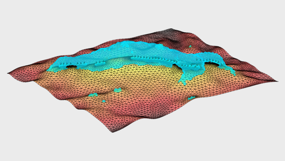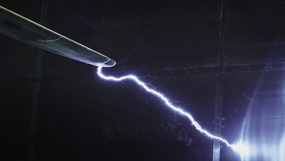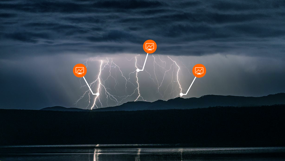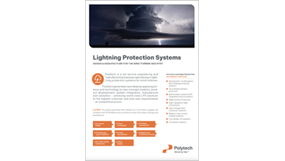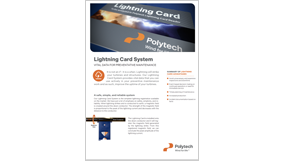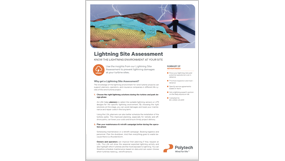Polytech
Lightning damage accounts for 60% of operational blade losses* and is the most common insurance claim** in the wind industry.
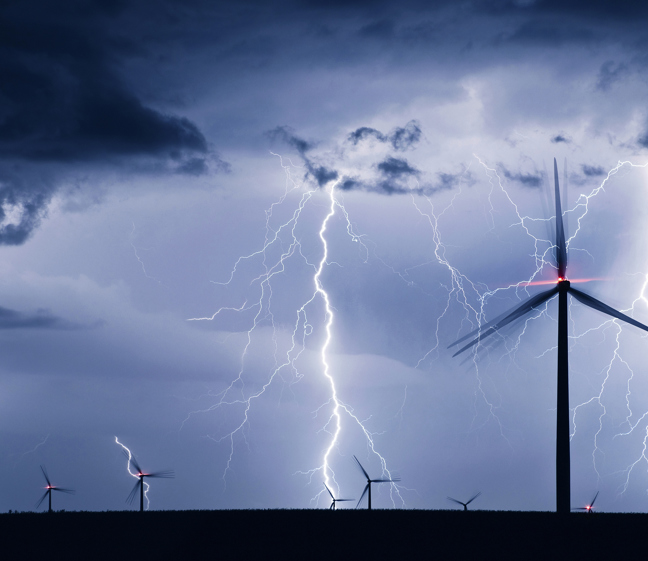
Lightning at your site
Every turbine, including yours, is hit by lightning min. 1 time a year. But some turbines are hit 66 times a year.
Lightning strikes vary from site to site and even across a single wind farm due to local topography and weather conditions. There can be huge differences in expected lightning exposure, severity, and occurrence.
What to do?
Make sure your lightning protecting system (LPS) is fit for your site and turbine. Always request a detailed lightning site assessment before signing any contract.
 Having the right requirements in your specifications can minimize the risks for lightning damage and save you, as an owner, major costs – and will also save costs for OEMs and insurance companies. It is a win-win.
Having the right requirements in your specifications can minimize the risks for lightning damage and save you, as an owner, major costs – and will also save costs for OEMs and insurance companies. It is a win-win.
Try our for your turbine park and get a free tailored report.
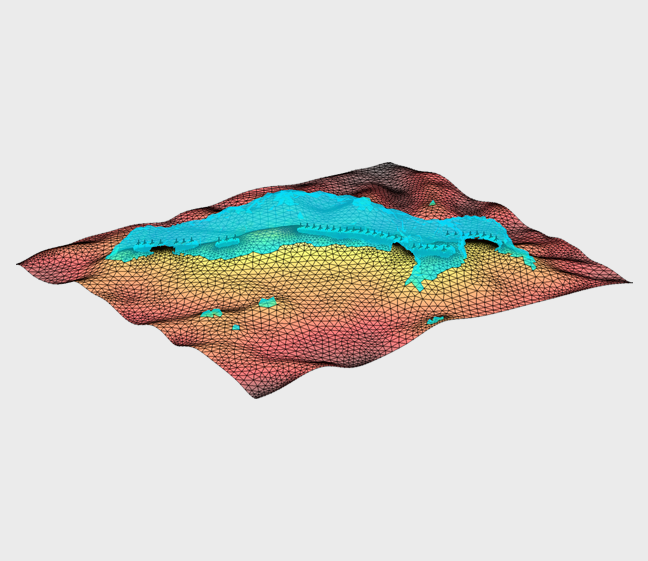
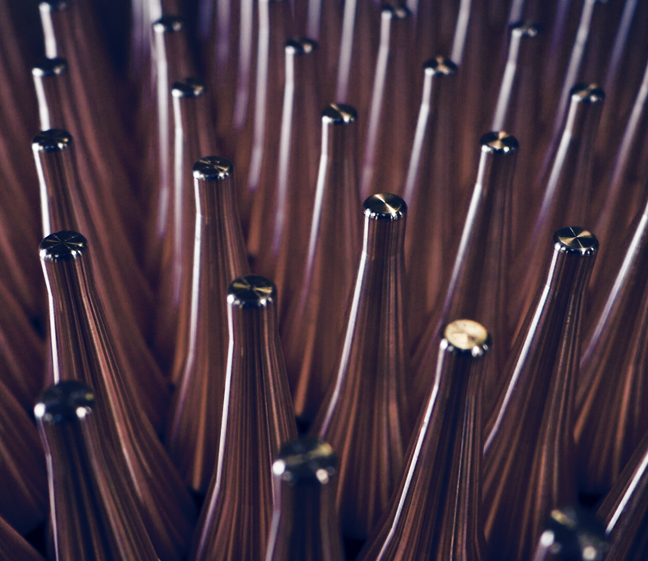
By choosing Polytech, you will get...
Full lightning protection of your entire turbine to lower your OPEX and maintenance costs with the best material for your needs, balancing physical properties, durability, environmental factors, and cost.
Solutions (hardware and software) that are pre-tested and pre-certified and are manufactured in-house globally. Everything that makes up your whole LPS from down conductors, mesh, and receptors to interface protection and current transfer systems.
Systems that are documented and verified in our accredited testing centers and lightning test facility.
Unmatched lightning expertise specialized for the wind industry. Our lightning experts are also taking part in the IEC S-588 MT24 meeting series to review and update the international standard on lightning protection of turbines, IEC 61400-24 Ed2.
Polytech’s LPS - above 99.9% documented performance
The IEC (where Polytech is sitting in on some of the steering boards) standards outline that an LPS must have a minimum performance of 98%.

Track record
Polytech’s LPS is installed in more than 110,000 blades worldwide. These blades have experienced 120,000-150,000 lightning strikes in total since 2016.

Documented efficiency
Field data from these turbines proves that our LPS has a documented performance of 99.9%.
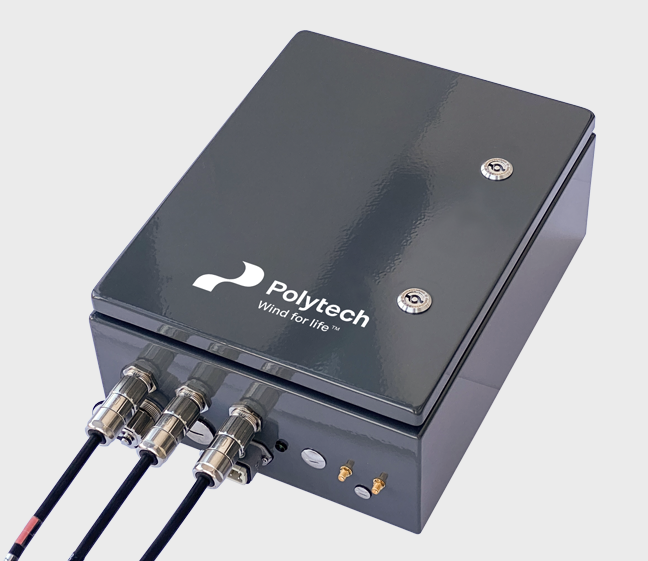
Lightning monitoring - LKDS®
Our Lightning Key Data System, LKDS®, is a unique wind turbine lightning measurement system that measures and records lightning events in real time.
If you know in real time exactly where lightning strikes, then there is no need to stop for inspection. You either keep your blades spinning because there was no damage, or you stop them to fix what you now know needs to be fixed.
You can therefore plan your service more efficiently and avoid unnecessary downtime.
With LKDS®, you can detect early any emerging and incipient vulnerabilities on the blade or electronics, which may have fatal consequences for the turbine if not taken care of in time.
The LKDS® is designed for natural integration into the harsh environment of the wind turbine hub and blade area. One sensor in each blade gives momentary measurements of the lightning behavior during a strike.
Lightning monitoring - Lightning Card System
Our Lightning Card System is simple yet solid solution that monitor thousands of turbines across the globe. It is available for retrofit on your turbine.
The lightning card measures the lightning current in the conductor by registering the size of the magnetic field caused by the current. This is an irreversible process, and only a lightning strike with higher current can overwrite this measurement.
The card can be replaced and read either during routine replacement or if a lightning strike is suspected.
The solution comes with a lightning card reader and a software that allows you to read the measurements and generate pdf reports.
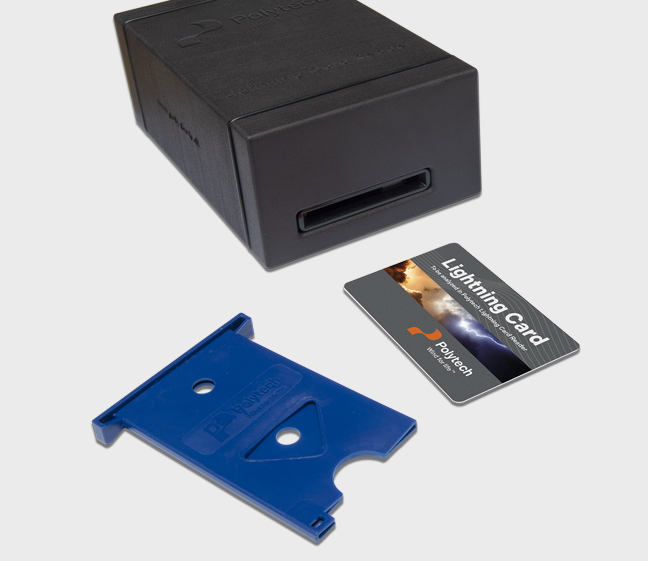
What we do – the Polytech lightning toolbox
Polytech is a full-solution provider for lightning protection systems. Our in-house lightning protection toolbox includes everything that goes into the development and operation of your LPS and monitoring solutions.
Avoid the common causes for lightning damage
Lightning damage can happen due to a variety of reasons. But there are some frequent issues that can lead to failure.
The increased use of carbon fiber in blades increases your lightning risks.
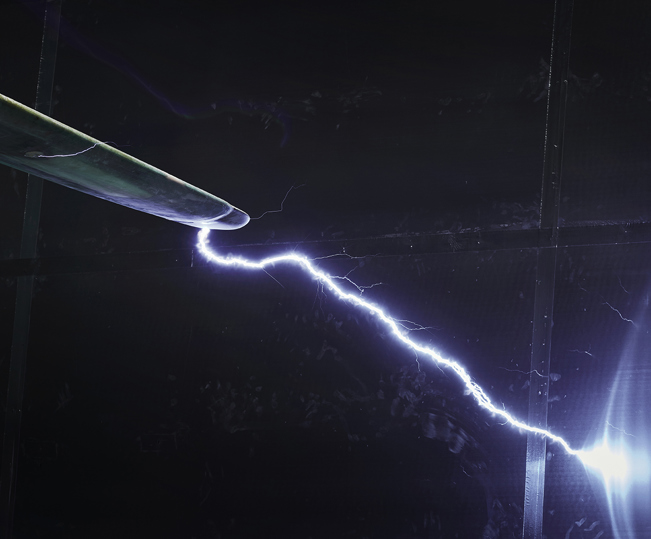
Blades have a lot of different conductive component inside. These include sensors, de-icing systems, lights, and communication systems.
The LPS design must consider these and assess lightning damage mitigation through separation, insulation, or electrical bonding.
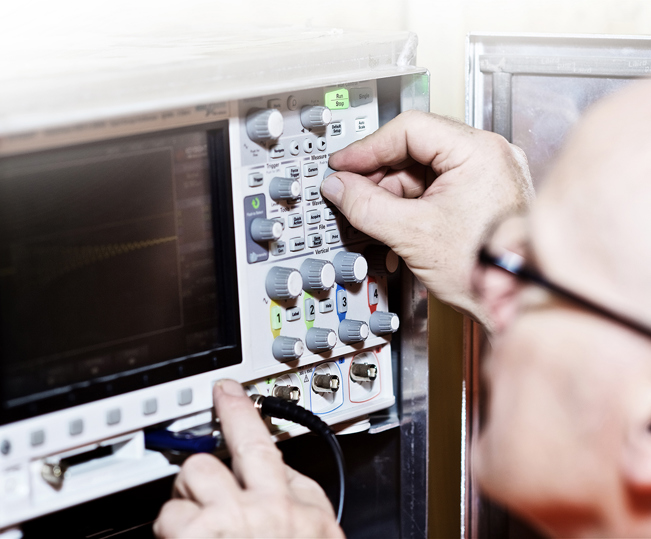
Lightning current needs to travel through your entire turbine structure safely. Insufficient lightning protection in your hub, gearbox, nacelle, and tower can lead to flashover, causing lightning damage.
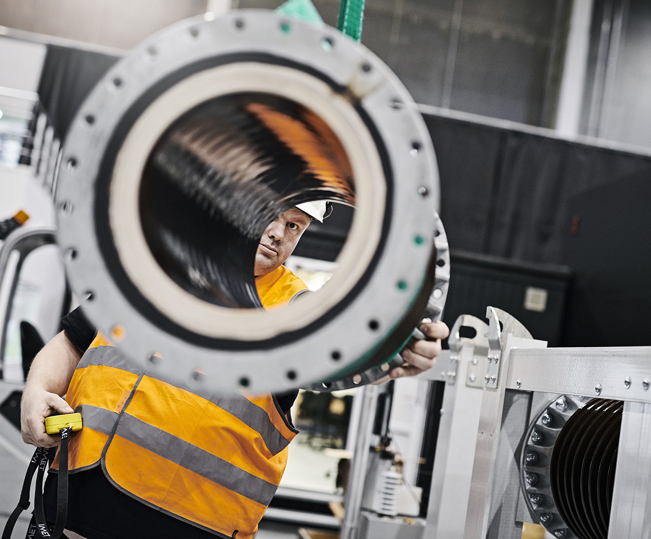
Contact us
Get in touch with our Sales team directly or contact our Business Development Director William Tyllström (for OEM customers) or Head of Aftermarket Marc Foldager (for aftermarket customers) to learn more about how our lightning solutions can optimize your operations.
